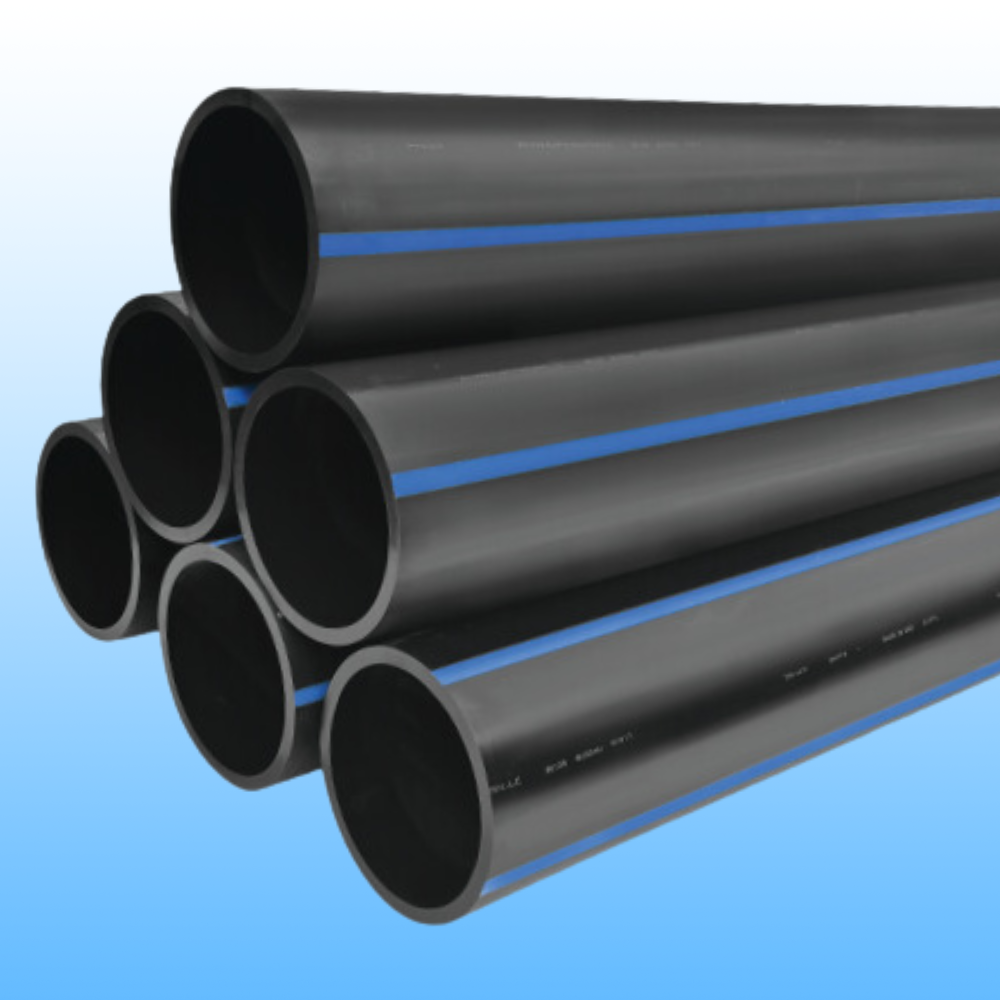Understanding the Secret Benefits of HDPE Pipe for Water and Wastewater Administration
Using HDPE pipe in water and wastewater management provides many benefits that warrant consideration. Its outstanding toughness and long life expectancy make it a recommended selection for many projects. In addition, the product's resistance to deterioration and chemical damages improves its integrity in various atmospheres. However, the advantages extend beyond simply long life and resistance. Exploring its cost-effectiveness and ecological impact exposes much more engaging factors for its extensive fostering in contemporary facilities
Outstanding Toughness and Durability

HDPE pipeline stands apart for its remarkable resilience and long life, making it a favored choice in water management systems. Created from high-density polyethylene, these pipelines can stand up to substantial pressure and tension, guaranteeing dependable efficiency gradually. Their durable nature enables them to sustain extreme environmental conditions, including temperature variations and soil motions, which can create various other products to fall short.
The lifespan of HDPE pipes typically surpasses 50 years, giving a cost-effective solution for districts and markets alike. Additionally, the product's light-weight homes simplify installment, minimizing labor costs and timeframes. This resilience decreases the demand for constant repair services or substitutes, better boosting its financial appeal.
In water administration applications, the reliability of HDPE pipes indicates less disturbances and enhanced solution continuity, making them indispensable to sustainable infrastructure advancement. The combination of sturdiness and long life strengthens HDPE's duty as a foundation in reliable water monitoring options.

Resistance to Corrosion and Chemical Damages
While several materials catch rust and chemical damage in time, HDPE pipelines show amazing resistance, making them excellent for different water monitoring applications. This durability originates from the molecular framework of high-density polyethylene, which is inherently non-reactive and does not corrode like metals or deteriorate from direct exposure to severe chemicals. Therefore, HDPE is very effective in atmospheres with hostile materials, such as wastewater systems that might contain acids, bases, and natural solvents.
In addition, HDPE pipelines can endure environmental elements such as dirt level of acidity and saline problems, further boosting their suitability for diverse applications (Pipe Supplier American Plastics Midland). Their capability to maintain structural integrity with time reduces the risk of leakages and failures, which is vital in ensuring the safety and reliability of water circulation and wastewater administration systems. The resistance to rust and chemical damage substantially adds to the overall performance and longevity of HDPE piping services.
Cost-Effectiveness and Financial Advantages
When taking into consideration the economic effects of water monitoring systems, the cost-effectiveness of HDPE pipes comes to be evident. These pipes provide reduced installment and maintenance prices compared to conventional products like steel or concrete. Their lightweight nature simplifies transportation and setup, causing decreased labor costs. Furthermore, HDPE pipes show a lengthy life expectancy, typically surpassing 50 years, which translates to fewer substitutes and lasting savings.
Moreover, the resistance of HDPE to corrosion and chemical damage minimizes the need for expensive fixings and substitutes. The Bonuses pipelines likewise support efficient water flow, minimizing power expenses connected with pumping systems. By minimizing leakages and water loss, HDPE pipes add to substantial economic advantages for towns and markets alike. Generally, the preliminary investment in HDPE piping can large pvc pipe yield substantial economic returns over the lifespan of the water management system, making it a prudent choice for lasting framework growth.
Environmental Sustainability and Minimized Impact

Versatility and Flexibility in Setup
As a result of their one-of-a-kind properties, HDPE pipes supply remarkable adaptability important source and flexibility in installation, making them appropriate for a wide variety of applications. Their lightweight nature enables simpler handling and transport, reducing labor expenses and installation time. HDPE pipes can be bent and formed to fit different surfaces and project requirements, which is particularly helpful in challenging settings.
Furthermore, their resistance to deterioration and chemical damages permits installment in diverse setups without the need for specialized protective layers. The capacity to fuse joints creates a continual, leak-free system, improving the total honesty and dependability of the installation. HDPE's adaptability additionally fits ground activity, minimizing the threat of damages in locations vulnerable to moving dirt. In general, these features make HDPE pipes not just functional however additionally a recommended selection for water and wastewater administration systems.
Frequently Asked Inquiries
How Does HDPE Pipe Contrast to PVC in Water Administration Applications?
HDPE pipe offers premium versatility, resistance to deterioration, and toughness contrasted to PVC. Its lighter weight facilitates less complicated installment, while its long life-span minimizes replacement costs, making HDPE a preferred choice in water monitoring applications.
What Is the Lifespan of HDPE Piping Under Normal Problems?
Under regular problems, HDPE pipelines can have a life expectancy varying from 50 to 100 years. Their durability and resistance to deterioration add to their long-lasting performance in different applications, making them a reputable choice for infrastructure.
Are HDPE Water Lines Recyclable After Their Solution Life?
Yes, HDPE pipes are recyclable after their solution life. hdpe pipe in stock Midland TX. They can be refined and repurposed into brand-new products, considerably reducing ecological effect and advertising sustainability within the industry, making them an environment-friendly option for piping remedies
What Is the Installment Refine for HDPE Pipes?
The installation procedure for HDPE pipes includes website prep work, trenching, pipe fusion or mechanical joining, backfilling, and pressure testing. Correct methods guarantee a sturdy and effective system for moving water and wastewater successfully.
Can HDPE Pipes Be Made Use Of for Both Drinkable and Non-Potable Water Equipments?
Yes, HDPE pipes can be used for both safe and clean and non-potable water supply. Their versatility, sturdiness, and resistance to deterioration make them appropriate for numerous applications, making certain risk-free and efficient transport of water in different contexts.